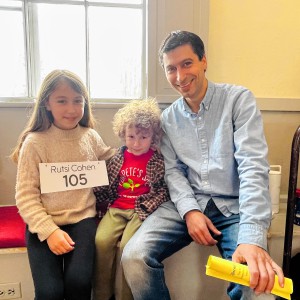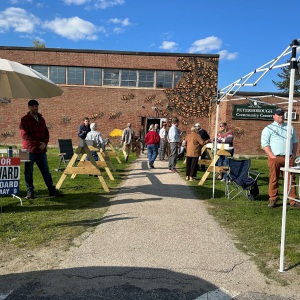Viewpoint: Robert Beck – Clock is ticking for Ukraine

Robert Beck COURTESY PHOTO
| Published: 10-06-2023 8:04 AM |
Sept. 30 marked the 85th anniversary of the Munich Agreement, which gave Nazi Germany the green light to take over limited areas of western Czechoslovakia. The British prime minister at the time, Neville Chamberlain, hailed the agreement as “peace for our time,” only to watch Hitler’s Germany completely occupy Czechoslovakia a few months later.
The tragic events of the late 1930s in Central Europe highlight the futility of trying to placate the territorial demands of a revanchist tyrant. While the international community has so far avoided that type of appeasement with respect to Russia’s war in Ukraine, recent disturbing developments in Europe and the United States offer significant cause for concern.
In mid-September, three European Union (EU) members -- Poland, Slovakia, and Hungary -- implemented unilateral bans on the import of Ukrainian grains in order to protect their domestic agriculture sector. In short, because of Moscow’s closure of the Black Sea to Ukraine’s grain exports, those foodstuffs are now shipped through Ukraine’s EU neighbors to world markets. Unfortunately, some of the grain has been sold in those neighboring countries, significantly undercutting the domestic market, thereby hurting local farmers whose support is critical for national governments across the region. Thus, unforeseen consequences of Ukraine’s grain export regime have increased tensions with some of its neighbors, at least two of which (Poland and Slovakia) are in the midst of contentious election cycles.
Regarding those national polls, Slovakia voted on Sept. 30 to return a populist party, Smer, led by a Russophile leader, Robert Fico, to power. During the campaign, Fico repeatedly stressed that should he become prime minister, Slovakia would cease all military support to Kiev. Consequently, should he successfully form a governing coalition in the coming weeks, Fico will almost certainly join Hungary’s Viktor Orban as a Russia-focused thorn in the side of the EU’s Ukraine policy.
On the northern flank of Central Europe, Poland, a heretofore critical ally of Ukraine, is in the final stages of an extremely rancorous election campaign. In late September, Polish Prime Minister Mateusz Morawiecki announced that Poland would no longer supply weapons to Kiev. as the country would instead focus on its own defense. Many commentators opined that the Polish decision was in fact a reaction to the ongoing grain issue mentioned above. Whatever the cause, the change in Polish policy, even if it is only a short-term measure, sends the wrong signal to both Moscow and Kiev about Western solidarity in support of Ukraine’s war effort.
In summary, of the four Warsaw Pact nations first to join the North Atlantic Treaty Organization (NATO) and the EU in the post-communist era, two, Hungary and Slovakia, now look to be solidly pro-Moscow and one, Poland, is starting to limit support to Kiev. Of the four, only the Czech Republic remains unconditionally pro-Ukraine.
Not to be forgotten, clear fissures in Washington’s commitment to Kiev are also starting to manifest. The recent 11th-hour continuing resolution to temporarily fund the U.S. government was notable for what was not included, specifically any funding for additional military or humanitarian aid to Ukraine. While the United States will likely continue to provide significant support to Kiev in the coming months, criticism is growing of the Biden administration’s purported “blank check” for Kiev. Make no mistake, the upcoming 2024 presidential election campaign will raise serious questions on the fiscal, political and national security implications of the Ukraine policy.
Taken collectively, these developments don’t yet equate to a 1938 Munich-like moment, but they do represent a growing unease in the West of supporting a seemingly never-ending war. Meanwhile, barring any extraordinary Ukrainian battlefield breakthroughs in the coming months, Vladimir Putin can simply wait for a future cease-fire agreement that will potentially solidify some of his ill-gotten gains and ensure “peace for his time.”
Article continues after...
Yesterday's Most Read Articles
 Spellers strut their stuff at inaugural Greenfield Spelling Bee
Spellers strut their stuff at inaugural Greenfield Spelling Bee
 Meet the candidates in this year’s Peterborough town election
Meet the candidates in this year’s Peterborough town election
 Mary Lawler remembered for a life of service
Mary Lawler remembered for a life of service
 ConVal track and field makes its one home meet count
ConVal track and field makes its one home meet count
 PHOTOS: The Farm at Wolf Pine Hollow holds TulipFête 2024
PHOTOS: The Farm at Wolf Pine Hollow holds TulipFête 2024
Robert Beck of Peterborough served for 30 years overseas with the United States government in embassies in Europe, the Middle East and Asia. He now teaches foreign policy classes at Keene State College’s Cheshire Academy for Lifelong Learning.


